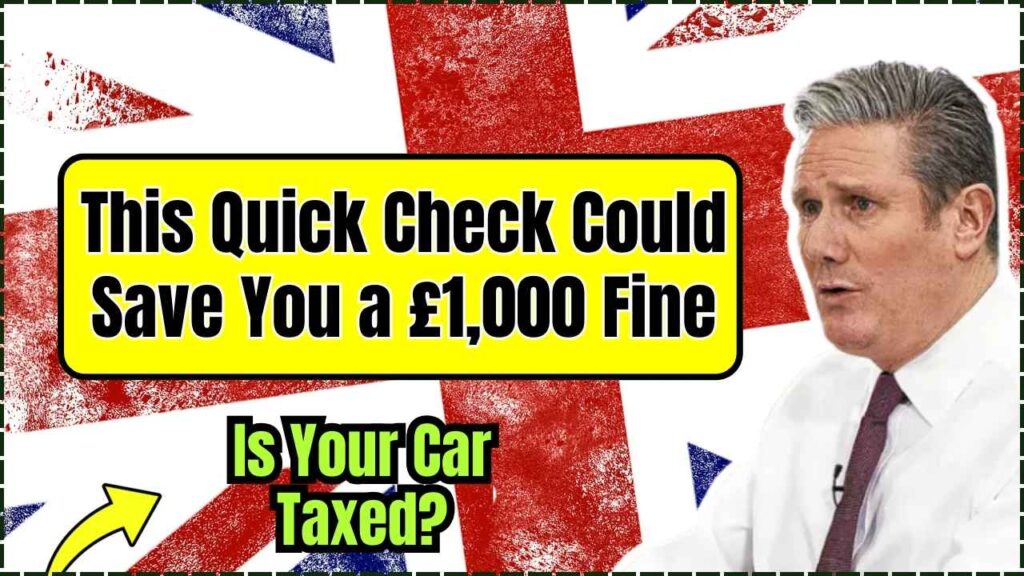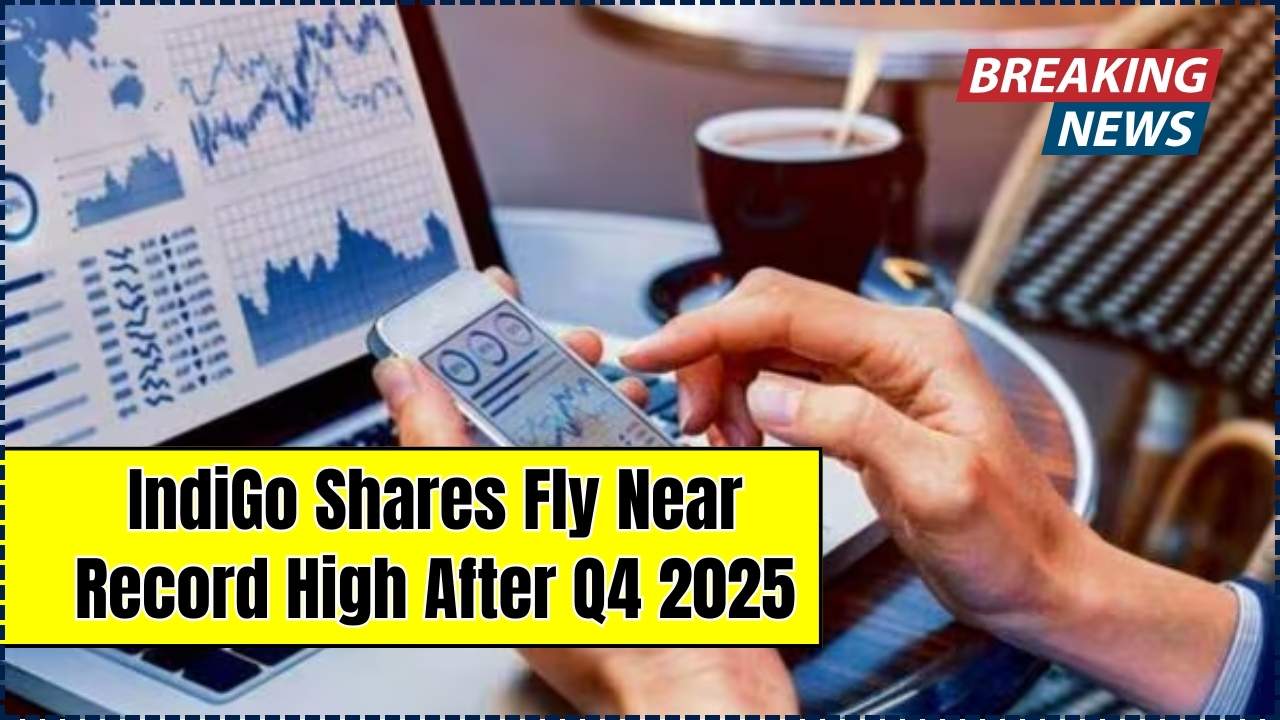Quick Check Could Save You a £1,000 Fine: Every driver in the UK has a legal responsibility to ensure their vehicle is taxed. Is your car taxed? It may sound like a simple question, but not knowing the answer could lead to serious consequences. If your car isn’t properly taxed, you could be fined up to £1,000, have your car clamped or impounded, and even face prosecution. Fortunately, checking your vehicle tax status is quick, easy, and completely free. In this detailed guide, we’ll walk you through everything you need to know to stay compliant with UK tax laws.

Whether you’re a new driver, a seasoned motorist, a business fleet manager, or someone who rarely drives, understanding the basics of UK car tax rules is essential. Not only will this help you avoid financial penalties, but it also ensures that you remain a responsible and law-abiding road user. Let’s explore the how, why, and what to do next.
Quick Check Could Save You a £1,000 Fine
| Topic | Details |
|---|---|
| Penalty for No Tax | Up to £1,000 fine or 5x the tax due, vehicle clamping or prosecution |
| How to Check Tax | DVLA’s Check Vehicle Tax tool |
| Common Mistakes | Ignored renewal notices, expired Direct Debits, unregistered address changes |
| Support Tools | Free email/text reminders, online payment, Direct Debit, SORN declaration |
| Official Resources | gov.uk/vehicle-tax, gov.uk/make-a-sorn |
Ensuring your car is taxed is one of the most important duties of vehicle ownership. It’s not just about obeying the law; it’s about making sure your car is roadworthy, compliant, and insured properly. The process to check, renew, and even declare your vehicle off-road is easier than ever thanks to online tools provided by the DVLA.
A few minutes of your time could save you hundreds or even thousands of pounds. Don’t leave it to chance. Use the check tools, set up reminders, and be proactive. You’ll enjoy peace of mind knowing your vehicle is 100% legal.
What Is Vehicle Tax and Why Does It Matter?
Vehicle Excise Duty (VED), often referred to as road tax or car tax, is a compulsory fee levied by the UK government for almost all vehicles driven or parked on public roads. The cost of vehicle tax depends on several factors:
- Your car’s fuel type
- Engine size
- CO2 emissions
- Date of first registration
The funds collected help support national road maintenance and transport infrastructure. However, the primary reason for car tax is to ensure vehicles meet minimum environmental and safety standards.
DVLA uses Automatic Number Plate Recognition (ANPR) cameras across the UK to spot untaxed vehicles. These cameras are mounted on police vehicles, roadsides, and enforcement vans, making it nearly impossible to evade detection.
According to the DVLA, more than 634,000 untaxed vehicles were detected in the UK in 2022, highlighting the importance of staying vigilant.
Quick Check Could Save You a £1,000 Fine Check
Checking your vehicle’s tax status is a straightforward process using an official DVLA service.
Quick Check Could Save You a £1,000 Fine Instructions
- Visit the Check Vehicle Tax page.
- Enter your vehicle’s registration number.
- Confirm your car’s make and model.
- View the status of your tax and MOT instantly.
Tip: Bookmark this tool and check quarterly to ensure you’re always up to date.
The DVLA system updates daily and is accurate, making it the most trustworthy way to verify compliance.
What Happens If You Don’t Tax Your Vehicle?
Driving or even parking a car on public roads without tax is a legal offence in the UK. There are multiple levels of enforcement:
Financial Consequences
- £80 Fixed Penalty Notice (FPN): If you’re caught driving an untaxed vehicle.
- £1,000 Court Fine or 5x the tax owed: For serious or repeat offences.
Clamping, Towing, and Storage Costs
- DVLA enforcement teams may clamp, tow, or impound your vehicle.
- Release fees start from £100, plus £21 per day storage.
- Additional charges may apply for late payments.
Legal Prosecution
- Ignoring penalties may lead to court action.
- Convictions may affect your insurance premiums and driving record.
In 2021, over 100,000 vehicles were clamped by DVLA for tax-related offences.
Common Reasons People Forget to Tax Their Cars
Why Oversights Happen
- Misplaced paper reminders (V11)
- Switching banks without updating Direct Debit
- Inheriting or buying a used car and assuming it’s taxed
- Moving house and not updating the address on your V5C
A Real-Life Cautionary Tale
John, a freelance delivery driver in Birmingham, missed his tax renewal notice during a move. Two weeks later, his car was clamped outside his new address. It cost him £280 in fines and fees to release it and get his tax reinstated.
Lesson: Always update your V5C immediately when moving to a new address.
Quick Check Could Save You a £1,000 Fine Set Up Vehicle Tax Reminders
Avoid unexpected lapses by registering for DVLA tax reminders.
Signing Up
- Visit Get vehicle tax reminders.
- Choose to receive reminders via email or SMS.
- Input your registration number and 11-digit reference code from your logbook or tax letter.
These reminders are free, reliable, and reduce your risk of accidental non-compliance.
Quick Check Could Save You a £1,000 Fine Tax Your Vehicle
Taxing your vehicle is simple and can be done in a few minutes.
What You’ll Need
- Vehicle Registration Number (number plate)
- 11-digit reference from your V5C or V11
- Debit/credit card or bank details for Direct Debit
Payment Methods
- Online via gov.uk/vehicle-tax
- Phone at 0300 123 4321
- In person at your local Post Office branch
Flexible Payment Options
- Pay annually, biannually, or monthly
- Set up a Direct Debit to spread the cost
- Cancel any time with refund for full unused months
Declaring Your Vehicle Off the Road (SORN)
If you’re not driving your vehicle and it’s stored on private land, you must declare a Statutory Off Road Notification (SORN).
When SORN Is Necessary
- You’re restoring or repairing the vehicle
- It’s laid up for winter storage
- The car is inoperable and parked in a garage or driveway
Quick Check Could Save You a £1,000 Fine Make a SORN
- Go to Make a SORN.
- Enter your registration number and reference code.
- Submit the form online or by post.
You’ll get confirmation within a few days. SORN is valid indefinitely until the vehicle is taxed again.
Reminder: You cannot drive or park a SORN vehicle on public roads.
Extra Tips to Stay Road Legal
- Set calendar alerts for MOT and tax renewal dates.
- Keep proof of payment for your tax in your vehicle.
- Regularly check your details on the DVLA site.
- Use the MOT Check Tool in tandem with tax checks.
- Inform your insurer if the car is off the road.
FAQs On Quick Check Could Save You a £1,000 Fine
Do I still need to tax my car if I don’t drive it?
Yes, unless it’s declared SORN and parked on private land.
Is tax transferable when buying a used car?
No. You must tax the vehicle in your name before driving it.
Can I tax my car without the logbook (V5C)?
Yes, using a V11 reminder or by applying for a new V5C.
What if I miss a payment on Direct Debit?
DVLA will notify you. You must update your payment method quickly to avoid penalties.
How soon after SORN can I drive the car?
Only after you’ve taxed it again. Tax must be active before taking it on the road.






